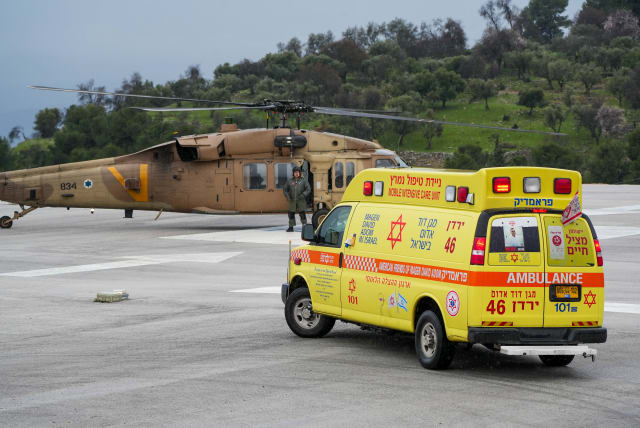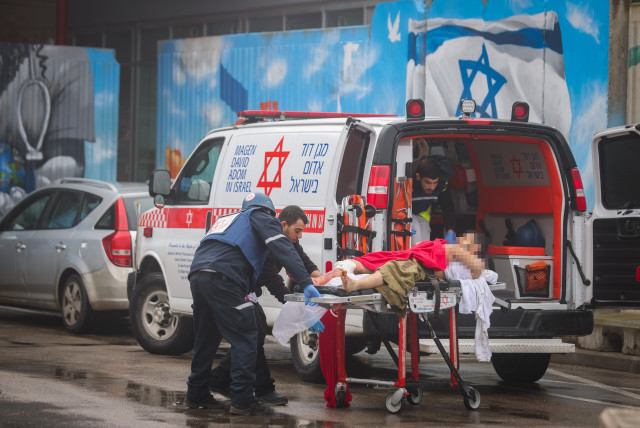Power outages and full hospitals: How will Israel prepare for war in North? - report

While much of the focus has been on Gaza, Israeli officials are beginning to prepare for various scenarios should Israel and Hezbollah engage in a larger war
Health Minister Uriel Busso and Ministry Director General Moshe Bar Siman Tov notified all relevant authorities in Israel of detailed scenarios that could take place should Israel go to war on the northern front against Hezbollah in a presentation.If this should be the case, Israel should be prepared for blackouts and power outages in more than 60% of the country, as well as power outages that will last about 48 hours. Local power outages may last up to three weeks in such a scenario. Managing such an electricity demand may lead to two-hour power outages between two and three times a day in every house in Israel.
"If everyone does the minimum in such a scenario, we will reach a situation where we will lose the lives of many, many people," Bar Siman Tov stated. In this scenario, the Health Ministry would be an essential factor and influential in coordinating with local authorities - cooperation is simply essential and will save lives."
The key role of ventilators
A cause of concern for senior officials in Israel's emergency system is the handling of breathing and life support such as ventilators, especially when considering potential extensive and prolonged power outages. In the presentation, the Health Ministry revealed how they are preparing to treat a population of 35,000 people requiring ventilators and respiratory support.
The Health Ministry is currently procuring generators that will be distributed to those who may require ventilators and respiratory support. In addition, the Health Ministry is asking authorities to establish energy and oxygen centers in local stations. Such centers will be established in bomb shelters, and each will have up to 50 sockets that will provide energy for recharging ventilators and medical equipment.
"50 sockets for each center can connect and recharge batteries," said David Zuckerman, director of the Alta Medical Center, at the discussion. These goals seek to prevent the healthcare system from collapsing while it may already be under a heavy burden.
Other strategies being implemented
The National Emergency Authority and various government ministries are preparing another variety of tools to deal with this extreme scenario: patient prioritization, evacuation shelters, and proper communication and information that will help the public. The Health Ministry has a breakdown of the 60 local authorities according to the scope of ventilators and respiratory support. The local authority with the most ventilators, at 4,000 ventilators, is Jerusalem, which is followed by 2,000 in Tel Aviv.
"What will happen if this thing comes true? How do we deal with it?" Bar Siman Tov said in the discussion. "And it is true that there will be such chaos and such a mess that no one will notice anything, but we want to save as many lives as possible."
With tensions continuously rising along Israel's northern border, the State of Israel is taking fewer and fewer risks and seeks to prepare for every scenario, with the hope that this extreme scenario will never become a reality.
Jerusalem Post Store
`; document.getElementById("linkPremium").innerHTML = cont; var divWithLink = document.getElementById("premium-link"); if (divWithLink !== null && divWithLink !== 'undefined') { divWithLink.style.border = "solid 1px #cb0f3e"; divWithLink.style.textAlign = "center"; divWithLink.style.marginBottom = "15px"; divWithLink.style.marginTop = "15px"; divWithLink.style.width = "100%"; divWithLink.style.backgroundColor = "#122952"; divWithLink.style.color = "#ffffff"; divWithLink.style.lineHeight = "1.5"; } } (function (v, i) { });

